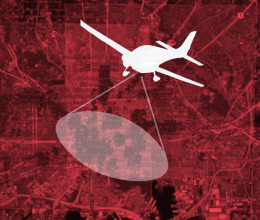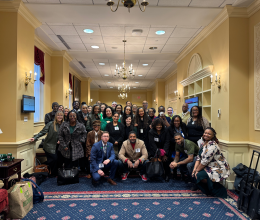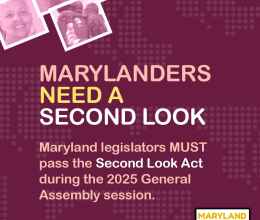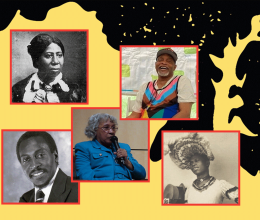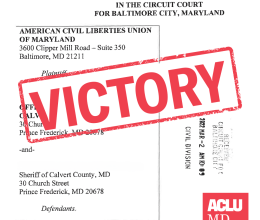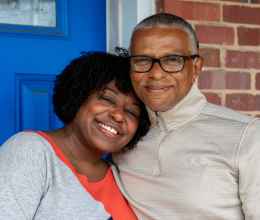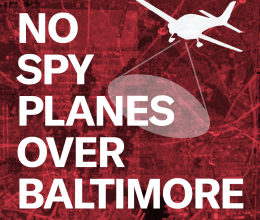
BALTIMORE, MD – Right now, there are planes in the sky, circling above the city of Baltimore every day, tracking people’s movements in violation of our Fourth and First Amendments. Black leaders and the American Civil Liberties Union (ACLU) have sued the Baltimore Police Department (BPD) because of the explicit privacy and free speech rights violations created by the use of spy planes, as well as concerns about the surveillance of Black activists and Black Lives Matter protests due to BPD’s long history of racial bias, police abuse, police brutality, and unconstitutional practices that violate the rights of Black residents in particular.
On this month’s episode of the Thinking Freely podcast, host Amber Taylor is joined by Dayvon Love, the public policy director for Leaders of a Beautiful Struggle, a grassroots think tank that advances the public policy interests of Black people in Baltimore, and David Rocah, senior staff attorney for the ACLU of Maryland, to discuss the spy plane program, the legal challenge, our privacy rights, government surveillance, and the impact the spy planes are having on residents of Baltimore, especially Black residents.
Dayvon Love said: “Martin Luther King was heavily surveilled. If you look nationally at the Black Panther Party for self-defense, another organization that was heavily infiltrated, surveillance was used to disrupt the Black Panther Party’s efforts. Black people’s history in this country is an example of how surveillance was heavily used as a tool to be disruptive of folks challenging the social order, which is supposed to be one of those stated rights of Americans to be able to voice our opposition to the status quo.”
Unfortunately, this country has a long history — continuing to the present day — of law enforcement using surveillance technology against people not because they are suspected of committing a crime, but because of their beliefs. In Baltimore, that has included the targeting of Black Lives Matter protesters, who in 2016, were subjected to sweeping surveillance, including aerial surveillance. This technology can be expected to spread to other cities that have a majority of Black residents and where activists have been rising up against police killings and abuse.
Deploying an all-seeing eye, at the expense of Black lives and rights, in order to combat crime does not address the root causes of violence in Baltimore, but instead attempts to treat symptoms that will just keep reappearing. David Rocah said: “There is something deeply disturbing and sick about the fact that it is the failures of governance and policing in Baltimore that have now become the excuse and justification for deploying the most far reaching surveillance system ever deployed in an American city, exploiting the misery and fear of the people in Baltimore. There is lots more that we can and should be doing that could achieve public safety in very different ways.”
Baltimore, a city that is currently under a federal consent decree for routinely violating people’s constitutional rights should not hold this kind of mass surveillance power. There are proven and community-based methods to prevent murders and make our communities safer. For example, programs like Safe Streets in Baltimore deescalates and meditates disputes, and have been shown to improve safety and reduce gun violence.
Erricka Bridgeford, cofounder of Baltimore Ceasefire 365, an organization dedicated to ending murders in Baltimore City, is transforming Baltimore through teaching better ways to handle conflict and making peace commitments with residents. According to one study, during Ceasefire weekends, there is about a 52% reduction in gun violence. Bridgeford and many activists like her are finding positive ways to build trust and make Baltimore a safer place.
Activists and communities are calling for divesting in law enforcement and fundamental change in policing to move in a public health direction, work with community-based organizations, and invest in Black communities. Together, we can find better solutions to improve public safety.
Thinking Freely promises to provide Marylanders with news about current events and ways you can be an activist in your community.
Listen to this episode of Thinking Freely to learn about the spy planes lawsuit and history of surveillance on Black activists. Listen here.
